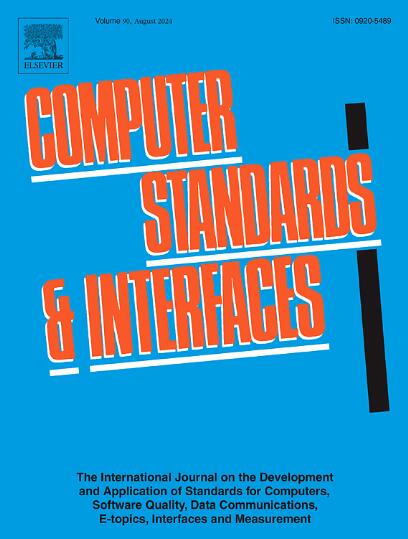支持区块链的物联网的可靠性技术和架构:当前应用,系统审查和未来趋势
IF 3.1
2区 计算机科学
Q1 COMPUTER SCIENCE, HARDWARE & ARCHITECTURE
引用次数: 0
摘要
物联网(IoT)设备在不同领域的快速扩散加剧了对安全性、可扩展性和信任的担忧,特别是由于对集中式架构的依赖。区块链凭借其分散的结构和加密基础,已成为安全、可扩展和负责任的物联网生态系统的潜在推动者。尽管人们越来越感兴趣,但对支持区块链的物联网网络的可靠性和可靠性机制的关注有限,特别是在资源受限或发展中地区。本研究对关键出版物进行了系统回顾,将其分为五个主要类别:共识机制、容错设计、数据完整性技术、基于多层的机制和基于轻量级区块链的机制。通过采用这种分类法,本文研究了从先进的加密方法到基于对称的架构设计等不同的技术方法如何有助于物联网生态系统中的信任管理、操作弹性和数据保护。研究结果表明,尽管区块链集成具有克服物联网基础设施现有限制的巨大潜力,但它也提出了新的工程和架构挑战。然而,文献中确定的各种技术在提高效率、减少延迟和增强分散物联网网络的整体可靠性和安全性方面取得了切实进展。本文章由计算机程序翻译,如有差异,请以英文原文为准。
Reliability techniques and architectures for blockchain-enabled internet of things: Current applications, systematic review, and future trends
The rapid proliferation of Internet of Things (IoT) devices across diverse sectors has amplified concerns regarding security, scalability, and trust, particularly due to the reliance on centralized architectures. Blockchain, with its decentralized structure and cryptographic foundations, has emerged as a potential enabler of secure, scalable, and accountable IoT ecosystems. Despite increasing interest, limited attention has been paid to the reliability and dependability mechanisms in blockchain-enabled IoT networks, especially in resource-constrained or developing regions. This study presents a systematic review of key publications, categorizing them into five principal groups: consensus mechanisms, fault-tolerant designs, data integrity techniques, multi-tier-based mechanisms, and lightweight blockchain-based mechanisms. By employing this taxonomy, the review investigates how different technical approaches ranging from advanced cryptography methods to symmetry-based architectural designs contribute to trust management, operational resilience, and data protection in IoT ecosystems. The findings suggest that although blockchain integration holds substantial potential for overcoming existing limitations in IoT infrastructures, it also presents new engineering and architectural challenges. Nevertheless, the diverse techniques identified in the literature demonstrate tangible progress in improving efficiency, reducing latency, and enhancing the overall reliability and security of decentralized IoT networks.
求助全文
通过发布文献求助,成功后即可免费获取论文全文。
去求助
来源期刊

Computer Standards & Interfaces
工程技术-计算机:软件工程
CiteScore
11.90
自引率
16.00%
发文量
67
审稿时长
6 months
期刊介绍:
The quality of software, well-defined interfaces (hardware and software), the process of digitalisation, and accepted standards in these fields are essential for building and exploiting complex computing, communication, multimedia and measuring systems. Standards can simplify the design and construction of individual hardware and software components and help to ensure satisfactory interworking.
Computer Standards & Interfaces is an international journal dealing specifically with these topics.
The journal
• Provides information about activities and progress on the definition of computer standards, software quality, interfaces and methods, at national, European and international levels
• Publishes critical comments on standards and standards activities
• Disseminates user''s experiences and case studies in the application and exploitation of established or emerging standards, interfaces and methods
• Offers a forum for discussion on actual projects, standards, interfaces and methods by recognised experts
• Stimulates relevant research by providing a specialised refereed medium.
 求助内容:
求助内容: 应助结果提醒方式:
应助结果提醒方式:


